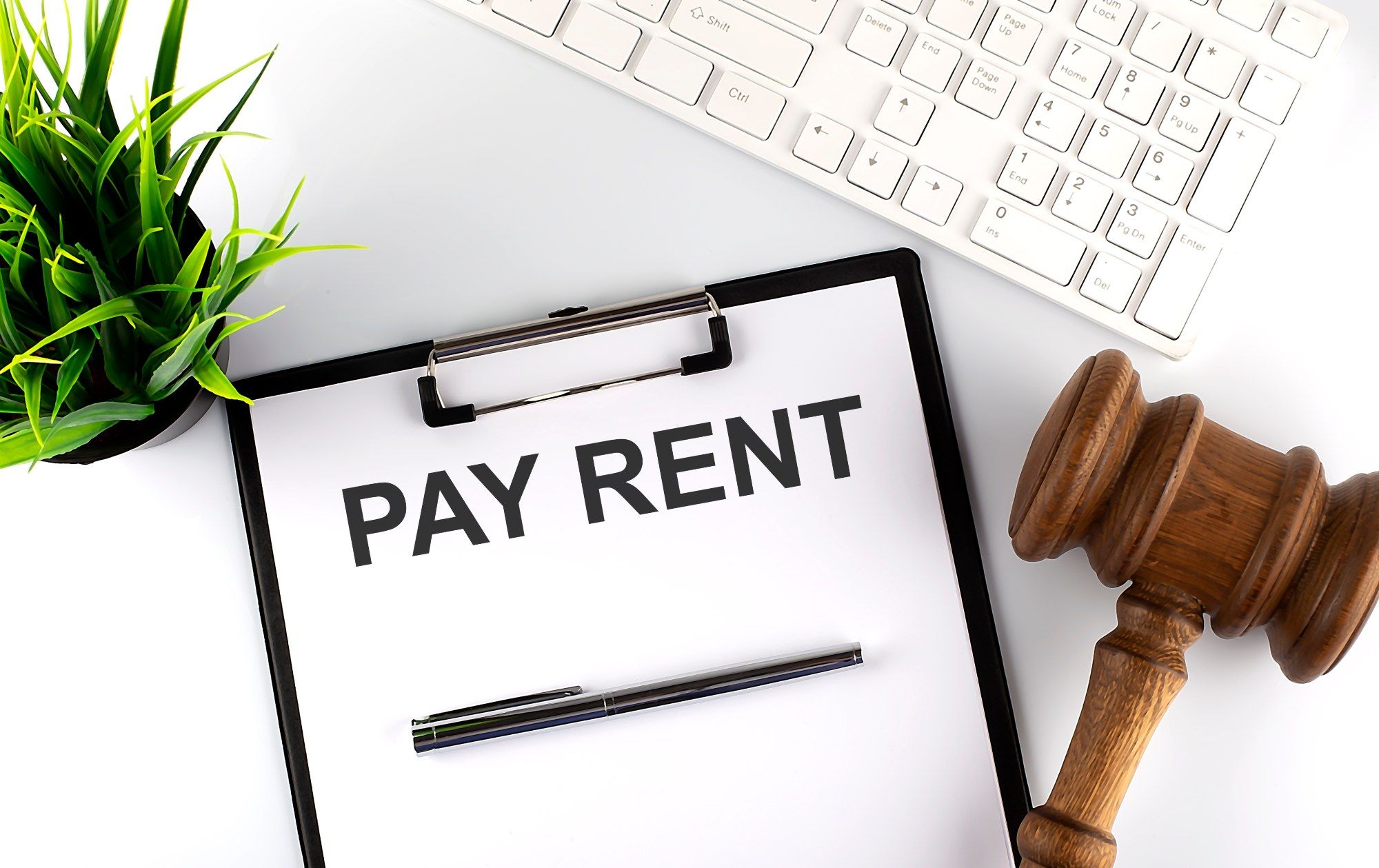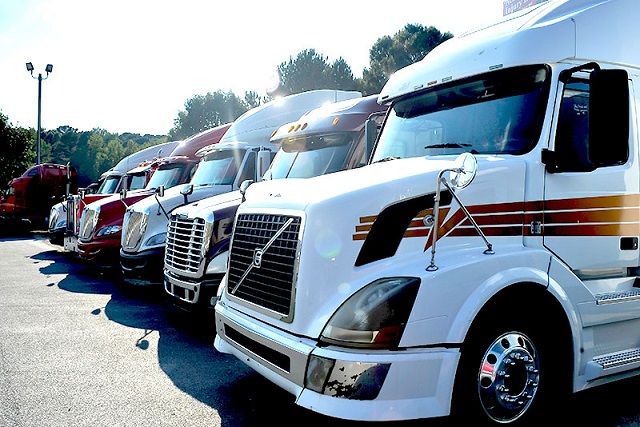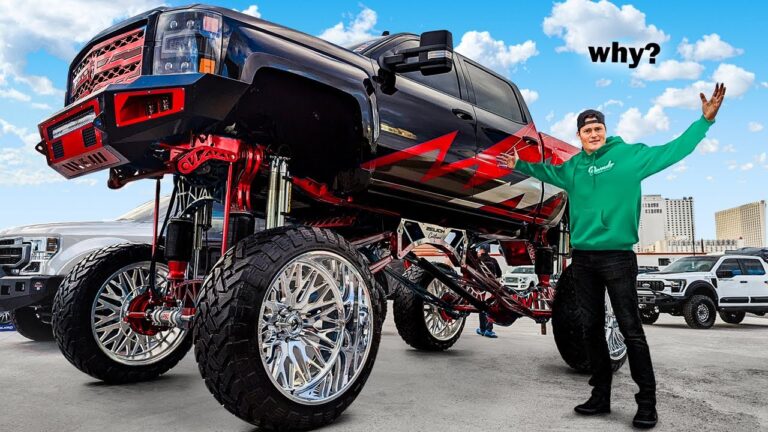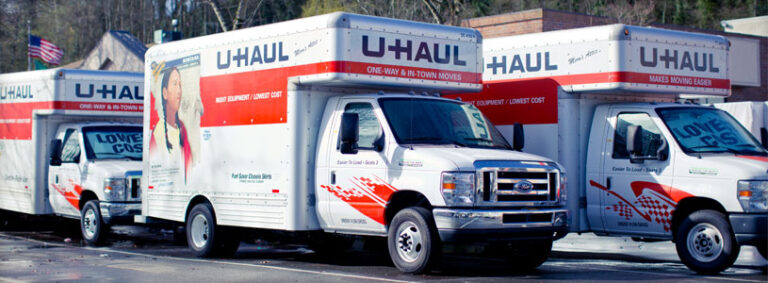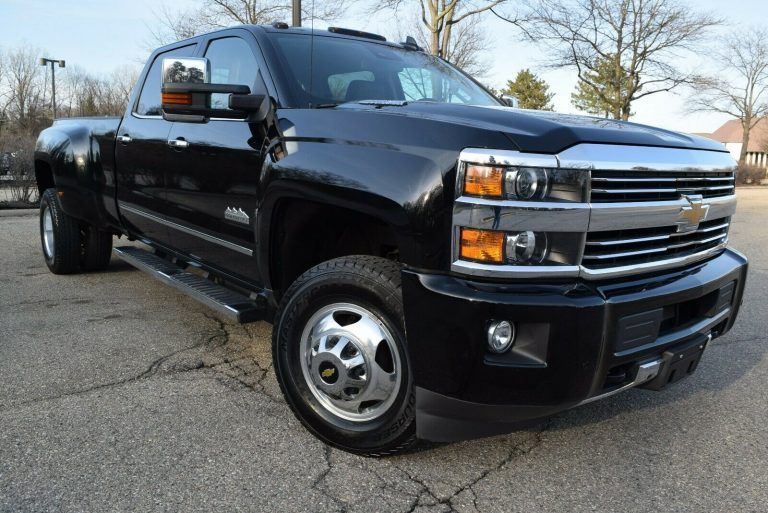Rent A Trailer From U-Haul: Your Comprehensive Guide to Efficient Hauling
Rent A Trailer From U-Haul: Your Comprehensive Guide to Efficient Hauling cars.truckstrend.com
Moving, undertaking a large DIY project, or transporting a vehicle often requires more than just the trunk of your car. For countless individuals and families across North America, the answer lies in a reliable, accessible, and versatile solution: renting a trailer from U-Haul. More than just a rental service, U-Haul has become synonymous with empowering self-movers, offering a diverse fleet of trailers designed to meet virtually any hauling need, from furniture and appliances to landscaping materials and even other vehicles. This comprehensive guide will delve into every aspect of renting a trailer from U-Haul, providing you with the knowledge and confidence to make your next hauling task a breeze.
Why Choose U-Haul for Trailer Rentals?
Rent A Trailer From U-Haul: Your Comprehensive Guide to Efficient Hauling
U-Haul’s prominence in the rental market isn’t just due to its ubiquitous orange and white trucks; its trailer rental service is equally robust and user-friendly. Opting for a U-Haul trailer offers several compelling advantages:
- Extensive Network: With thousands of locations across the U.S. and Canada, finding a U-Haul trailer near you for pickup or drop-off is exceptionally easy, supporting both local and one-way moves.
- Variety of Options: U-Haul boasts an impressive selection of trailer types and sizes, ensuring there’s a perfect fit for almost any hauling requirement, from small utility needs to large cargo or vehicle transport.
- Affordability: Trailer rentals are often a more cost-effective solution than renting a full moving truck, especially if you already own a vehicle capable of towing.
- Flexibility: U-Haul offers flexible rental periods, from daily to multi-day, allowing you to tailor the rental to your specific timeline.
- Safety Focus: U-Haul prioritizes safety, providing well-maintained equipment and offering supplementary insurance options for peace of mind.

Types of U-Haul Trailers Available
Understanding the different types of trailers U-Haul offers is the first step in selecting the right equipment for your job. Each category serves distinct purposes and comes in various sizes:
1. Cargo Trailers (Enclosed)
Cargo trailers are enclosed, providing protection for your belongings from weather elements and offering enhanced security. They are ideal for moving household goods, furniture, boxes, and other items that need to stay dry and secure.
- 4’x8′ Cargo Trailer: Smallest enclosed option, perfect for dorm room moves, small apartments, or hauling extra luggage. Features a lightweight design and low loading deck.
- 5’x8′ Cargo Trailer: A popular choice for one-bedroom apartments, small furniture, or bulkier items. Offers more volume than the 4×8.
- 5’x10′ Cargo Trailer: Suitable for one to two-bedroom apartments or larger furniture items. Often comes with a ramp for easier loading.
- 6’x12′ Cargo Trailer: The largest enclosed option, ideal for two to three-bedroom homes, large appliances, or significant hauling projects. Most 6×12 trailers are equipped with a loading ramp.


2. Utility Trailers (Open Top)
Utility trailers are open-top, flatbed trailers designed for hauling items that are bulky, oddly shaped, or resistant to weather, such as landscaping materials, construction debris, motorcycles, or large equipment.
- 4’x7′ Utility Trailer: Compact and versatile, great for small hauling jobs like yard waste, small furniture, or a few pieces of lumber.
- 5’x8′ Utility Trailer: A popular general-purpose trailer, suitable for appliances, motorcycles, ATVs, or larger loads of landscaping materials.
- 6’x12′ Utility Trailer: The largest utility trailer, perfect for heavy-duty tasks like hauling large amounts of debris, construction materials, multiple ATVs, or even small vehicles. Some models may feature a ramp.
3. Car Trailers (Vehicle Transport)
Designed specifically for towing vehicles, U-Haul offers two primary types of car trailers:
- Tow Dolly: A two-wheel trailer that lifts the front wheels of the towed vehicle off the ground. Ideal for front-wheel drive cars, compacts, and mid-size sedans. Less expensive and lighter than an auto transport.
- Auto Transport: A four-wheel trailer designed to carry the entire vehicle off the ground. Suitable for all types of cars, trucks, and SUVs, including four-wheel drive vehicles. Provides maximum protection and stability for the towed vehicle.
The U-Haul Trailer Rental Process: A Step-by-Step Guide
Renting a trailer from U-Haul is a straightforward process, largely facilitated by their online system.
Step 1: Research and Reservation
- Assess Your Needs: Determine the type and size of trailer you need based on what you’re hauling and your towing vehicle’s capacity.
- Check Towing Vehicle Compatibility: Use U-Haul’s online "Towing Capacity Calculator" or consult your vehicle’s owner’s manual. Ensure your vehicle has the correct hitch (Class I, II, III, or IV), a 1-7/8" or 2" trailer ball, and functional lighting connections (4-flat or 7-way).
- Visit U-Haul.com: Go to the U-Haul website or use their mobile app.
- Enter Details: Input your pickup location, desired dates, and whether it’s an "In-Town" (round trip) or "One-Way" rental.
- Select Trailer: Browse available trailers and select the one that meets your requirements. The system will guide you to ensure compatibility with your towing vehicle.
- Complete Reservation: Provide your personal information, contact details, and payment method. You’ll receive a confirmation email. It’s advisable to reserve well in advance, especially during peak moving seasons.
Step 2: Picking Up Your Trailer
- Required Documents: Bring your valid driver’s license (must be 16 years old to rent trailers), and the credit card used for the reservation.
- Pre-Rental Inspection: A U-Haul representative will inspect your towing vehicle to ensure it meets safety requirements (hitch, ball size, electrical hookup, tire pressure). They will also confirm your vehicle’s towing capacity.
- Hitching and Safety Check: The U-Haul team will typically assist you in hitching the trailer to your vehicle, connecting the safety chains, and testing the trailer lights (turn signals, brake lights, running lights). Pay attention to their instructions and ask questions.
- Walk-Around Inspection: Before departing, perform a thorough walk-around inspection of the trailer. Check tires for proper inflation, inspect the frame for damage, and ensure all lights are working.
Step 3: Driving with a U-Haul Trailer
- Load Properly: Distribute weight evenly, with approximately 60% of the cargo weight positioned towards the front of the trailer (closest to the hitch). Secure all items to prevent shifting.
- Adjust Driving Style:
- Speed: Drive at reduced speeds, especially on highways and during turns. U-Haul recommends a maximum of 55 MPH when towing.
- Braking: Allow for significantly increased braking distances.
- Turns: Make wider turns to account for the trailer’s length.
- Lane Changes: Signal well in advance and allow extra space.
- Hills: Downshift on inclines and declines to maintain control and reduce strain on your vehicle’s brakes.
- Frequent Checks: Stop periodically to check the hitch connection, safety chains, tire pressure, and cargo security.
Step 4: Returning Your Trailer
- Fuel: Unlike trucks, U-Haul trailers do not require fuel.
- Cleanliness: Ensure the trailer is reasonably clean upon return. Remove any debris, dirt, or personal items.
- Return Location: Return the trailer to the designated U-Haul location by the agreed-upon time. For one-way rentals, ensure you return it to the specified drop-off location.
- Check-in: A U-Haul representative will inspect the trailer and complete the return process. If returning after hours, follow the instructions provided by the location (usually involving parking the trailer and dropping keys/contract in a designated box).
Important Considerations Before Renting
Towing Vehicle Requirements
This is paramount. Your towing vehicle must be equipped and rated to handle the weight of the trailer plus its contents.
- Hitch: A properly installed hitch receiver of the correct class (Class I, II, III, or IV).
- Hitch Ball: A 1-7/8" or 2" diameter hitch ball, depending on the trailer type.
- Wiring: Functional 4-flat or 7-way wiring harness for trailer lights.
- Brake Controller: For heavier trailers (especially auto transports and larger cargo/utility trailers), a separate brake controller may be required in your towing vehicle to activate the trailer’s electric brakes. U-Haul will advise if needed.
- GVWR/GCWR: Understand your vehicle’s Gross Vehicle Weight Rating (GVWR) and Gross Combined Weight Rating (GCWR) from your owner’s manual. This dictates how much weight your vehicle can safely tow. U-Haul will verify this.
Insurance Options
While your personal auto insurance policy might cover liability for a rental trailer, it often does not cover damage to the U-Haul trailer itself or your cargo. U-Haul offers supplementary coverage options:
- Safemove® / Safemove Plus® (for Trucks): While primarily for trucks, this package often includes liability coverage that extends to a towed trailer.
- Safetow®: Specifically designed for trailer rentals, this coverage protects you from financial responsibility for accidental damage to the U-Haul trailer and offers supplemental liability coverage. It’s a wise investment for peace of mind.
One-Way vs. In-Town Rentals
- In-Town (Round Trip): You pick up and return the trailer to the same U-Haul location. This is typically the most affordable option for local moves or projects.
- One-Way: You pick up the trailer at one U-Haul location and drop it off at a different one. This is essential for long-distance moves but generally comes with a higher rental cost. Not all trailer types or sizes are available for one-way rentals at all times.
Safety Tips
- Pre-Trip Inspection: Always perform a quick check of lights, tires, and hitch connection before each drive.
- Weight Distribution: Proper loading is critical to prevent sway.
- Maintain Distance: Leave ample space between your vehicle and others on the road.
- Avoid Overloading: Never exceed the trailer’s or your vehicle’s weight limits.
- Be Aware of Crosswinds: High winds can significantly affect trailer stability.
- Practice: If you’re new to towing, practice driving, backing up, and turning in an empty parking lot before hitting the road.
Benefits of Renting a Trailer vs. a Truck
While U-Haul trucks are excellent for large moves, trailers offer distinct advantages in certain scenarios:
- Cost-Effectiveness: If you own a capable towing vehicle, renting a trailer is often significantly cheaper than a truck, as you only pay for the trailer, not the truck’s base rate, mileage, and fuel.
- Fuel Efficiency: Your personal vehicle, even when towing, might be more fuel-efficient than a large moving truck.
- Maneuverability: Your personal vehicle with a trailer can be easier to maneuver and park in tight spaces compared to a large moving truck, especially in urban environments.
- Convenience: You don’t need to transfer your personal belongings from your car to a truck; your car stays with you.
Potential Challenges and Solutions
While generally smooth, trailer rentals can present minor challenges:
- Availability: During peak seasons (summer, end-of-month), trailers can be scarce.
- Solution: Reserve your trailer as far in advance as possible. Be flexible with pickup times or even consider slightly different sizes if your first choice isn’t available.
- Towing Capacity Concerns: Your vehicle might not meet U-Haul’s safety requirements for your chosen trailer.
- Solution: Always verify your vehicle’s towing capacity and hitch class before reserving. U-Haul’s online tools are helpful. If your vehicle isn’t suitable, you might need to rent a U-Haul truck instead.
- Hitching Difficulties: First-timers might find hitching challenging.
- Solution: The U-Haul staff will assist you. Don’t hesitate to ask questions or for a demonstration. Watch online tutorials beforehand.
- Driving Anxiety: Driving with a trailer feels different and can be intimidating.
- Solution: Start slow, practice in a safe area, and take wider turns. Plan your route to avoid tight spots. Remember, safety is paramount, so drive defensively.
U-Haul Trailer Rental Estimated Price Guide
Please note that these are estimated prices and can vary significantly based on location, duration (daily vs. multi-day), availability, specific dates, and whether it’s an in-town or one-way rental. One-way rentals are generally much more expensive due to logistics. This table provides a general range for in-town, daily rentals.
| Trailer Type | Size | Typical Daily In-Town Price Range (USD) | Common Uses | Key Features |
|---|---|---|---|---|
| Cargo Trailers | 4’x8′ | $14.95 – $19.95 | Small apartment moves, luggage, personal items | Enclosed, lightweight, low deck |
| (Enclosed) | 5’x8′ | $18.95 – $24.95 | Dorms, 1-bedroom apartments, appliances | Enclosed, secure, weather-protected |
| 5’x10′ | $28.95 – $34.95 | 1-2 bedroom apartments, larger furniture | Enclosed, often with ramp | |
| 6’x12′ | $34.95 – $44.95 | 2-3 bedroom homes, large appliances, bulky items | Enclosed, large capacity, often with ramp | |
| Utility Trailers | 4’x7′ | $14.95 – $19.95 | Yard waste, small lumber, DIY supplies | Open top, compact, easy to maneuver |
| (Open Top) | 5’x8′ | $18.95 – $24.95 | Motorcycles, ATVs, appliances, landscaping materials | Open top, versatile, durable |
| 6’x12′ | $28.95 – $38.95 | Large equipment, construction debris, multiple ATVs | Open top, heavy-duty, some with ramps | |
| Car Trailers | Tow Dolly | $49.95 – $64.95 | Front-wheel drive cars, compacts, sedans | Two wheels on ground, easy to hitch |
| (Vehicle Transport) | Auto Transport | $69.95 – $89.95 | All vehicles (FWD/RWD/AWD), trucks, SUVs | All four wheels off ground, full vehicle support |
Note: Prices do not include taxes, environmental fees, or optional insurance (Safetow®). One-way rental prices can be several times higher than daily in-town rates and fluctuate greatly based on demand and distance.
Frequently Asked Questions (FAQ)
Q: What do I need to rent a U-Haul trailer?
A: You need a valid driver’s license (must be at least 16 years old), a credit card for payment, and a towing vehicle that meets U-Haul’s safety standards and towing capacity requirements.
Q: Do I need special insurance to rent a U-Haul trailer?
A: While your personal auto insurance may offer some liability coverage, it often doesn’t cover damage to the U-Haul trailer itself or your cargo. U-Haul offers Safetow® coverage specifically for trailers, which is highly recommended for peace of mind.
Q: Can I rent a trailer one-way?
A: Yes, many U-Haul trailer types are available for one-way rentals, especially cargo trailers and car trailers. Utility trailers are less commonly available for one-way. Be aware that one-way rates are significantly higher than in-town rates.
Q: What are the speed limits when towing a U-Haul trailer?
A: U-Haul recommends a maximum speed of 55 MPH when towing any of their equipment. Always obey posted speed limits and adjust your speed for road conditions, weather, and traffic. Some states have specific lower speed limits for vehicles towing trailers.
Q: Do I need a brake controller for my vehicle?
A: For certain larger trailers, especially auto transports and some 6’x12′ cargo trailers, a brake controller may be required in your towing vehicle to activate the trailer’s electric brakes. U-Haul’s system will inform you if one is needed for the trailer you select.
Q: Can I pick up or drop off a trailer after hours?
A: It depends on the specific U-Haul location. Many locations offer 24/7 self-return options via their mobile app or a designated key/contract drop box. For after-hours pickup, you might need to arrange this with the location in advance.
Q: What if my vehicle isn’t suitable to tow the trailer I want?
A: U-Haul prioritizes safety. If your vehicle doesn’t meet the necessary towing capacity, hitch requirements, or wiring standards for the chosen trailer, U-Haul will not allow you to rent it. In such cases, you might need to consider a smaller trailer, upgrade your vehicle’s towing equipment, or opt for a U-Haul moving truck instead.
Conclusion
Renting a trailer from U-Haul is an incredibly versatile and cost-effective solution for a myriad of hauling needs. Whether you’re moving across town, embarking on a cross-country adventure, or simply tackling a weekend project, U-Haul offers a trailer perfectly suited for the job. By understanding the types of trailers available, following the simple rental process, prioritizing safety, and being aware of important considerations like towing capacity and insurance, you can ensure a smooth, efficient, and successful experience. Empower yourself with the right tools, plan ahead, and let U-Haul help you confidently conquer your next hauling challenge.
